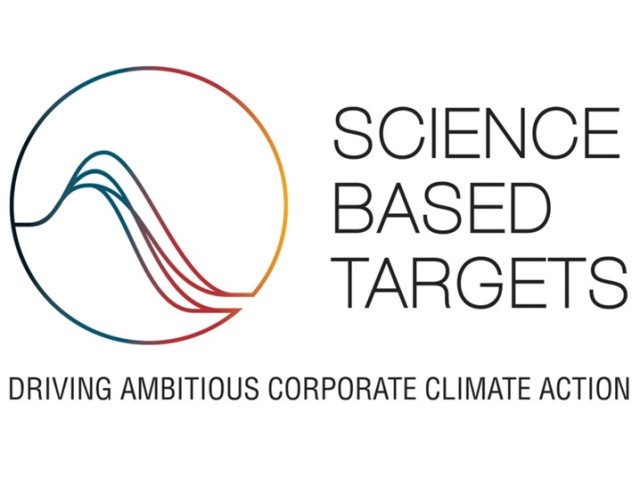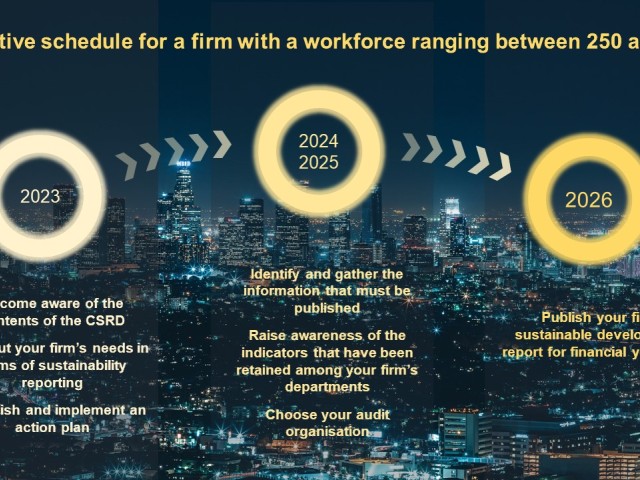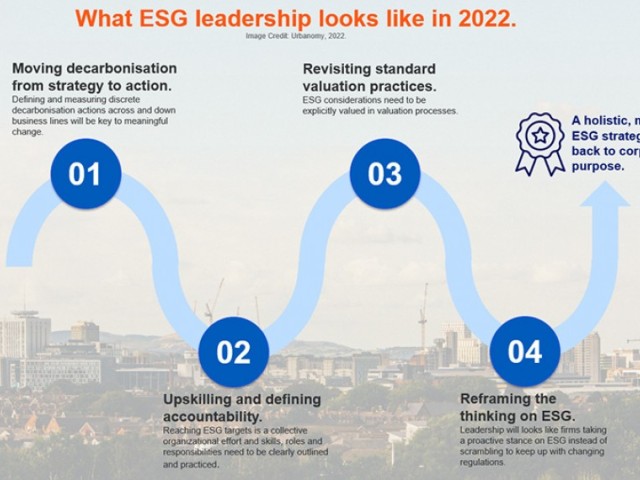By Shirin Shah, Urbanomy
20/03/2024
In the fight against climate change, the importance of reducing carbon emissions is paramount.
While organisations have made strides in addressing their direct emissions (Scope 1) and those from purchased electricity (Scope 2), Scope 3 emissions is where many find particularly challenging.
The importance of being earnest
Scope 3 emissions encompass indirect emissions generated from a company's value chain, including upstream and downstream activities such as supply chain operations, product use, and end-of-life disposal.
These emissions can account for the majority of a company's carbon footprint, making their reduction crucial for achieving sustainability goals and mitigating climate impacts. Increasing pressure from both regulators and investors makes it ever more urgent for Scope 3 emissions to be taken into account.
Decarbonising Scope 3 emissions poses several challenges, including limited control over value chain activities, complex supply chains, data collection difficulties, cost implications, and regulatory uncertainty. These challenges require innovative solutions and collaborative efforts to overcome.
These emissions can account for the majority of a company's carbon footprint, making their reduction crucial for achieving sustainability goals and mitigating climate impacts. Increasing pressure from both regulators and investors makes it ever more urgent for Scope 3 emissions to be taken into account.
Decarbonising Scope 3 emissions poses several challenges, including limited control over value chain activities, complex supply chains, data collection difficulties, cost implications, and regulatory uncertainty. These challenges require innovative solutions and collaborative efforts to overcome.

Xavier Popy / REA
Transcript
Picture of compressed cans at a waste-to-energy plant in Perpignan, in the south of France
The starting five
There aren’t any one-size-fits-all strategies, and approaches will vary depending on the industry and business model. To address Scope 3 emissions effectively, businesses can implement a variety of actions:
-
Sustainable procurement, by selecting / prioritising suppliers with low-carbon practices and integrating environmental criteria into procurement decisions
-
Product design and circular economy, by developing products with lower life-cycle emissions – challenging historical formulations and product specifications to optimise product design for sustainability (e.g. reducing the need for virgin resources, making products easy to repair). Designing products with their end in mind – ensuring that the products can easily be recycled or disassembled without difficulty for second life application
-
Supply chain collaboration and partnerships, by collaborating with suppliers to identify emission hotspots and implement sustainable practices throughout the supply chain
-
Green portfolio strategies, by building on existing capabilities and moving into new green business segments to lower the overall portfolio footprint
-
Value chain integration, by integrating into the value chain (upstream or downstream) to increase control of value chain emissions
It's all about opportunities
While decarbonising Scope 3 emissions presents challenges, it also offers significant value-creating opportunities for businesses.
A competitive advantage, to start with, as companies that effectively reduce Scope 3 emissions can gain a market edge by demonstrating environmental leadership, meeting stakeholder expectations, and attracting environmentally-conscious consumers.
Cost savings, secondly, as emissions reduction initiatives, such as energy efficiency improvements and waste reduction measures, can also result in cost savings and operational efficiencies.
Risk management, as well, because addressing Scope 3 emissions can help companies manage regulatory risks, supply chain disruptions, and reputational risks associated with climate change impacts.
And lastly innovation and collaboration: decarbonisation efforts drive innovation and foster collaboration across industries, leading to the development of new technologies, business models and partnerships.
A competitive advantage, to start with, as companies that effectively reduce Scope 3 emissions can gain a market edge by demonstrating environmental leadership, meeting stakeholder expectations, and attracting environmentally-conscious consumers.
Cost savings, secondly, as emissions reduction initiatives, such as energy efficiency improvements and waste reduction measures, can also result in cost savings and operational efficiencies.
Risk management, as well, because addressing Scope 3 emissions can help companies manage regulatory risks, supply chain disruptions, and reputational risks associated with climate change impacts.
And lastly innovation and collaboration: decarbonisation efforts drive innovation and foster collaboration across industries, leading to the development of new technologies, business models and partnerships.

laris968 / Pixabay
Transcript
Picture of denim jeans made from recycled fibres
A few successful initiatives
Several companies have demonstrated leadership in decarbonising Scope 3 emissions. Here are some examples originally cited by the World Economic Forum in this Agenda blog article.
Philips (tech provider focused on health)
Philips set the ambitious target of generating 25% of its revenue from circular products and services by 2025. Philips started the Capital Equipment Coalition, a group of like-minded organisations, including Cisco and Dell, to develop and share best practices. It has committed to take back and repurpose all large medical systems from its customers.
Philips now offers its customers a choice of pre-owned systems that have been thoroughly refurbished, upgraded and quality tested. It provides these at a lower cost, with a full warranty. Where refurbishment is not an option, Philips ensures responsible repurposing by removing valuable parts then recycling back any remaining raw materials through local systems.
Ingka Group (the holding company which owns IKEA)
Ingka is committed to becoming a circular business. It invested in RetourMatras, a company that dismantles mattresses and re-uses the waste, which has the capacity to recycle all mattresses disposed of in the Netherlands. It is targeting Belgium, Switzerland, Denmark, and Sweden next, and has made its first steps towards recycling mattresses in the UK.
It is estimated that more than 40 million mattresses are disposed of annually in Europe. Recycling a mattress saves 76kgs of CO2 emissions, as compared to incineration. If all the mattresses disposed of in Europe were recycled, it would save over 3 billion kgs of CO2 emissions.
ZF (suppliers of systems for the automotive industry)
Since ZF directly and indirectly processes around 1.5 million tons of steel per year worldwide, one key lever to achieve this is the purchase of sustainable sourced material. The company is doing this by collaborating with its suppliers. ZF recently concluded a long-term supply agreement with H2 Green Steel – from 2025 through 2032 the company will ramp up and supply ZF with 250,000 tons of steel annually from a plant in Sweden. This plant has end-to-end digitisation, electricity from renewable sources and uses green hydrogen instead of coal.
Decarbonising Scope 3 emissions is essential for businesses to achieve sustainability objectives, mitigate climate risks, and capitalise on emerging opportunities. While there are challenges, strategic initiatives and collaboration can pave the way for a low-carbon future.
This article initially appeared on page 26 of the Spring 2024 edition of Buying and Using Utilities digital magazine, a publication of the Major Energy Users' Council (MEUC)
Philips (tech provider focused on health)
Philips set the ambitious target of generating 25% of its revenue from circular products and services by 2025. Philips started the Capital Equipment Coalition, a group of like-minded organisations, including Cisco and Dell, to develop and share best practices. It has committed to take back and repurpose all large medical systems from its customers.
Philips now offers its customers a choice of pre-owned systems that have been thoroughly refurbished, upgraded and quality tested. It provides these at a lower cost, with a full warranty. Where refurbishment is not an option, Philips ensures responsible repurposing by removing valuable parts then recycling back any remaining raw materials through local systems.
Ingka Group (the holding company which owns IKEA)
Ingka is committed to becoming a circular business. It invested in RetourMatras, a company that dismantles mattresses and re-uses the waste, which has the capacity to recycle all mattresses disposed of in the Netherlands. It is targeting Belgium, Switzerland, Denmark, and Sweden next, and has made its first steps towards recycling mattresses in the UK.
It is estimated that more than 40 million mattresses are disposed of annually in Europe. Recycling a mattress saves 76kgs of CO2 emissions, as compared to incineration. If all the mattresses disposed of in Europe were recycled, it would save over 3 billion kgs of CO2 emissions.
ZF (suppliers of systems for the automotive industry)
Since ZF directly and indirectly processes around 1.5 million tons of steel per year worldwide, one key lever to achieve this is the purchase of sustainable sourced material. The company is doing this by collaborating with its suppliers. ZF recently concluded a long-term supply agreement with H2 Green Steel – from 2025 through 2032 the company will ramp up and supply ZF with 250,000 tons of steel annually from a plant in Sweden. This plant has end-to-end digitisation, electricity from renewable sources and uses green hydrogen instead of coal.
Decarbonising Scope 3 emissions is essential for businesses to achieve sustainability objectives, mitigate climate risks, and capitalise on emerging opportunities. While there are challenges, strategic initiatives and collaboration can pave the way for a low-carbon future.
This article initially appeared on page 26 of the Spring 2024 edition of Buying and Using Utilities digital magazine, a publication of the Major Energy Users' Council (MEUC)

About the author
Shirin Shah
Shirin is Urbanomy's Decarbonisation Principal in the UK.
He has more than 20 years’ experience in the energy sector and has worked in various roles within EDF UK, ranging from innovation to governance, risk management, control, credit risk and internal audit. Prior to joining Urbanomy, he was an Associate Partner at NovAzure, supporting innovation for startups and corporates.
He graduated from Nottingham Trent University with a BA degree in Accounting and he is a qualified accountant with a strong foundation from Ernst&Young.














